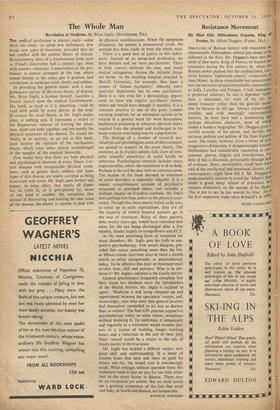He Died Old: Mithradates Eupator, Kin g of Pontus. By
Alfred Duggan. (Faber, 18s. defeated in the East. Mr. Duggan's hero wa interminable Mithradates, always just about AMATEURS of Roman history will remembt :r an to be
s the
d the sixth of that name. King of Pontus, he heade the resistance during the first century BC, whet rela- Roman power pushed into the sophisticated, ,[3:1:sliasndt°eul auldhts esfunachceeouirshdneeYerrsfi' tively humane 'eighteenth-century' civilisatic Asia Minor. In three remarkable but unsucce wars he encountered such formidable comma, as Sulla, Lucullus and Pompey. Cruel, tenac a perpetual schemer, he was a diplomat n than a statesman, for most of his lift astute treasurer rather than the genuine lc that he became in old age. Always mysterii wealthy, and with seemingly common] perhaps chivalrous character, most of motives, he must have had a dominating which eludes a modern biographer. Mr. Duggan gi careful account of his career, and clarifies stem tortuous policies and polities of the Near-Ea scene. The vision, however, from a writer of ebefil natnaebaboesicecuundei 'lack imaginative distinction, is disappointingly lirr Mithradates' had considerable reputation as noisseur, patron, linguist and trencherman, little of this is discussed, presumably through of evidence. More, nevertheless, could have told of the intellectual and emotional climate contemporary might have felt it. Mr. Dugg understandably anxious to avoid the 'Albert's under a green lamp' school of evocation, remains obstinately on the outside of his th his is This is not to say he has wasted his time : I 1890. the first important study since Reinach's in PETER VANSITTAR1


































 Previous page
Previous page